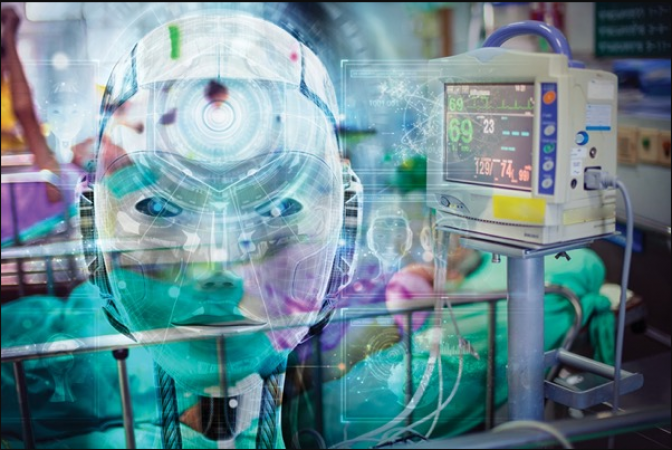
USA: In the future, AI has the potential to significantly help with operations and other medical issues. In fact, AI has already been incorporated into healthcare systems, and the results are encouraging. Here are a few ways that AI can help.
1. Surgical Assistance: AI can assist surgeons by providing real-time guidance during procedures. For instance, computer vision algorithms can analyze preoperative images and assist in surgical planning. During the surgery, AI can help identify critical structures, track surgical instruments, and provide feedback to enhance precision and reduce errors.
2. Diagnostic Support: AI algorithms can analyze medical images, such as X-rays, MRIs, and CT scans, to aid in diagnosing diseases and conditions. These algorithms can quickly analyze large amounts of data, identify patterns, and help radiologists and clinicians in making accurate diagnoses.
Also Read: Watch! American Lawmakers to unveil Taiwan war to-do list
3. Personalized Medicine: AI can analyze large datasets, including patient records, genomic information, and clinical trial data, to develop personalized treatment plans. This can lead to improved outcomes by identifying the most effective interventions for individual patients based on their unique characteristics.
4. Disease Detection and Prediction: AI can be trained to detect early signs of diseases by analyzing various data sources, such as medical images, genetic information, and patient records. This can help in early intervention and proactive management of conditions like cancer, cardiovascular diseases, and neurodegenerative disorders.
5. Drug Development: AI can accelerate the drug discovery process by analyzing vast amounts of data and predicting the efficacy and safety of potential drug candidates. This can help researchers identify promising compounds and reduce the time and cost involved in developing new medications.
6. Patient Monitoring: AI-enabled devices can continuously monitor patients' vital signs, such as heart rate, blood pressure, and oxygen levels, and alert healthcare providers in case of abnormalities or emergencies. This allows for proactive and timely interventions.
7. Virtual Assistants and Chatbots: AI-powered virtual assistants can provide basic healthcare information, answer patient queries, and assist in triaging cases. Chatbots can help streamline administrative tasks, schedule appointments, and provide personalized health advice.
Also Read: AI-powered drone swarms are tested by the anti-China bloc
While AI has a lot of potential, it should support and complement healthcare professionals rather than taking their place. In order to provide thorough and compassionate care, medical professionals' knowledge and judgement continue to be essential. To ensure the ethical and secure application of AI in healthcare, regulatory frameworks, data privacy concerns, and other issues must also be taken into account.